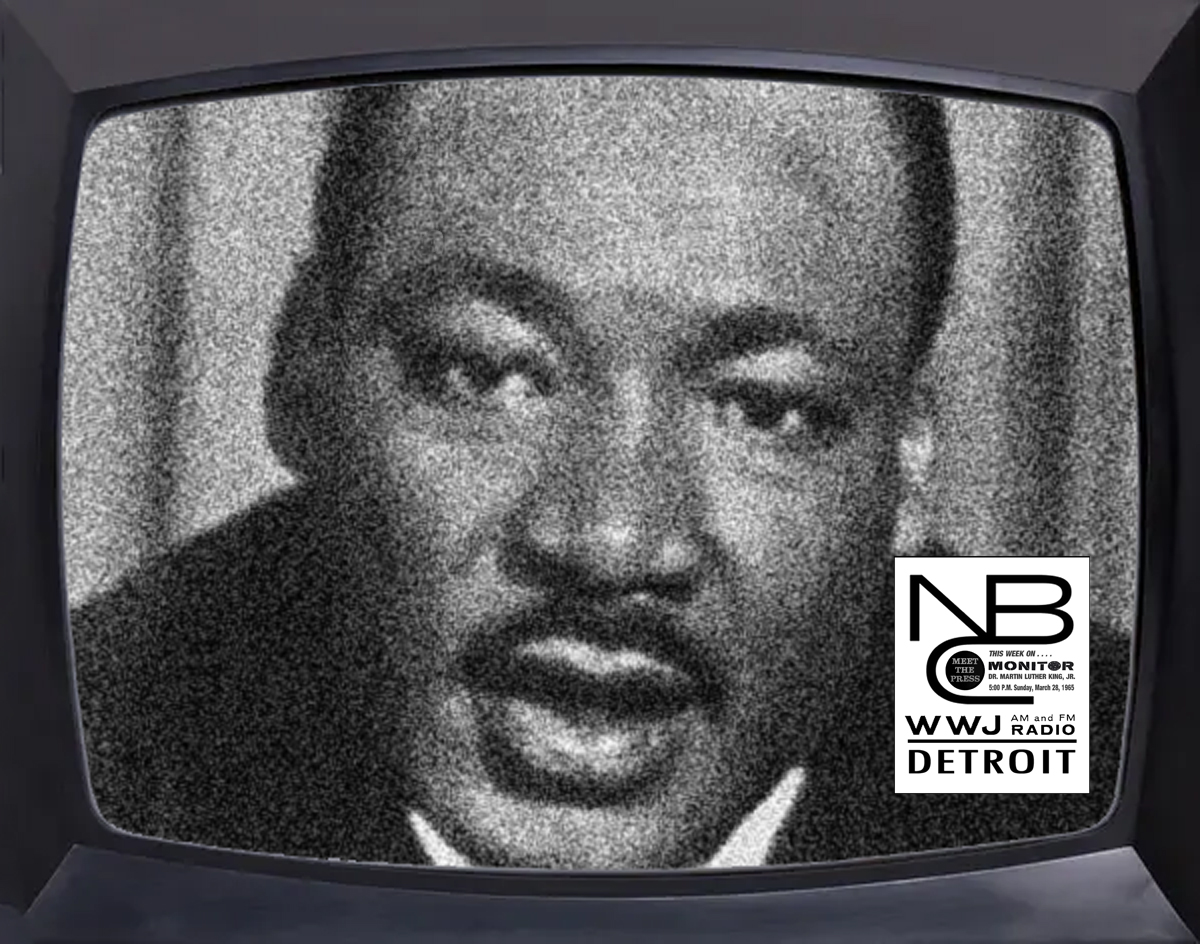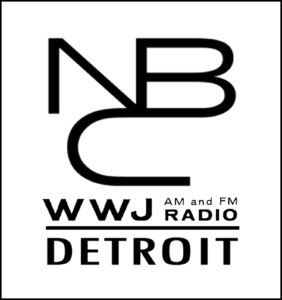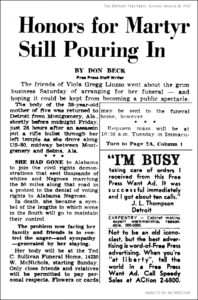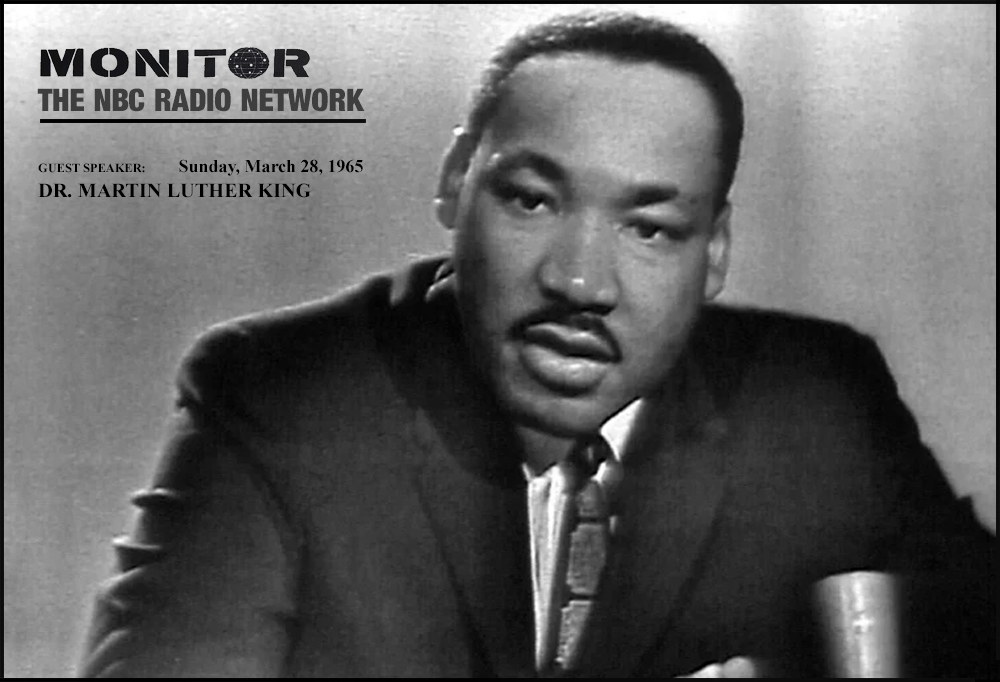
![]()
 Audio digitally restored by Motor City Radio Flashbacks
Audio digitally restored by Motor City Radio Flashbacks
![]()
 ______________________________
______________________________
 Monitor was an American weekend radio program broadcast live and nationwide on the NBC Radio Network from June 12, 1955, until January 26, 1975. It began originally on Saturday morning at 8am and continued through the weekend until 12 midnight on Sunday. After the first few months, the full weekend broadcast was shortened when the midnight-to-dawn hours were dropped since few NBC stations carried it.
Monitor was an American weekend radio program broadcast live and nationwide on the NBC Radio Network from June 12, 1955, until January 26, 1975. It began originally on Saturday morning at 8am and continued through the weekend until 12 midnight on Sunday. After the first few months, the full weekend broadcast was shortened when the midnight-to-dawn hours were dropped since few NBC stations carried it.
The program offered a magazine-of-the-air mix of news, sports, comedy, variety, music, celebrity interviews and other short segments (along with records, usually of popular middle-of-the-road songs, especially in its later years). Its length and eclectic format were radical departures from the traditional radio programming structure of 30 and 60 minute programs and represented an ambitious attempt to respond to the rise of television as America’s major home-entertainment medium.
The show was the brainchild of Sylvester (Pat) Weaver, whose career bridged classic radio and television’s infancy and who sought to keep radio alive in a television age. Believing that broadcasting could and should educate as well as entertain, Weaver fashioned a series to do both with some of the best-remembered and best-regarded names in broadcasting, entertainment, journalism, and literature taking part. Monitor and the Sunday-afternoon TV documentary series Wide Wide World were Weaver’s last two major contributions to NBC, as he left the network within a year of Monitor’s premiere.
When Monitor began on June 12, 1955, at 4pm, the first hour of the program was simulcast on NBC-TV. That initial June 12 broadcast lasted eight hours, from 4pm through 12 midnight. Following the Monitor beacon, Morgan Beatty was the first voice ever heard on Monitor. After an introduction by Pat Weaver, news headlines by Dave Garroway and a routine by Bob and Ray, Garroway cued Monitor’s opening music remote: live jazz by Howard Rumsey and the Lighthouse All-Stars at the Lighthouse Café in Hermosa Beach, California. It was the first of many jazz remotes in the weeks to come.
On the following Saturday, June 18, Monitor began broadcasting 40 consecutive hours each weekend, from 8am on Saturday to midnight on Sunday. Monitor aired from a mammoth NBC studio called Radio Central, created especially for the program, on the fifth floor of the RCA Building in midtown Manhattan (the same space which is now home to MSNBC). NBC unveiled Radio Central to the national television audience during a segment in the October 16, 1955 premiere of Wide Wide World, including a Monitor interview with Alfred Hitchcock (seen through glass in an adjacent studio and minus audio) and a Monitor newscast (with audio). Built at a cost of $150,000 the glass-enclosed studios of Radio Central were described by Pat Weaver as “a listening post of the world.”
Monitor Beacon
The enduring audio signature of the show was the “Monitor Beacon” — a mix of audio-manipulated telephone tones and the sound of an oscillator emitting the Morse code signal for the letter “M”, for “Monitor”. It was described by one source as “a tape loop made from a sequence of 1950s AT&T telephone line switching tones generated by analog oscillators”.
The Beacon introduced the show and was used in transitions, for example, to station breaks, accompanied by the tag line: “You’re on the Monitor beacon.”
The innovative approach of Monitor made it a profitable success for NBC Radio over many years, helping to sustain the network in an era when network radio was collapsing. Its strong start and high popularity led the show to air on Friday nights from 8pm to 10pm in 1957, followed by an expansion to weeknights in 1959, all in addition to its 32 weekend hours (reduced from 40 in late 1955).
By 1961, the weeknight Monitor was gone and the weekend schedule cut in half – from 32 to 16 hours each weekend. This was not quite as drastic a cut as it seems, as some programming that had been counted as part of Monitor’s 32 hours—such as Sunday morning religious broadcasts and the radio version of Meet the Press—continued to air on NBC outside of the Monitor schedule. This was further shortened in 1974 to only 12 live weekend hours (plus nine repeated hours).
Radio stations, especially in large markets, had increasingly adopted personality-driven formats featuring local disc jockeys and sought to establish a clear-cut musical or talk identity for themselves. Because of this, Monitor’s “something-for-everyone” programming often did not fit in with schedules and viewpoints of stations, and fewer affiliates carried the program in major markets. Due to this, many of the show’s sponsors also pulled away, requiring a shortening of the schedule to keep costs low.
About 125 stations still carried the program on its last day, with few in major markets. After 20 years of broadcasting, Monitor signed off after airing it’s last program on January 26, 1976. Source: Monitor (Radio Program) Wikipedia
Monitor March 28, 1965
Addendum
 On Sunday, March 28, 1965, the presented NBC Monitor program aired on WWJ 950 (Detroit) at the top of the 5:00 p.m. hour, according to the Detroit Free Press radio guides, as dated, and published that year [Detroit Free Press Newspaper Archive, copyright 2024].
On Sunday, March 28, 1965, the presented NBC Monitor program aired on WWJ 950 (Detroit) at the top of the 5:00 p.m. hour, according to the Detroit Free Press radio guides, as dated, and published that year [Detroit Free Press Newspaper Archive, copyright 2024].
In this Monitor segment, the guest speaker was 1964 Nobel Prize winner and ’60s civil rights activist, Dr. Martin Luther King, Jr.
The program panelists and the voices you will hear are those of James K. Kilpatrick (The Richmond News Leader), Tom Wicker (The New York Times) John Chancellor (NBC News), and Lawrence J. Spivak (Producer; Meet the Press). Program was moderated by Ned Brooks.
The panelists queried Dr. King for answers and his views of the civil rights movement under his leadership.
Dr. King provided direct responses to inquiries and remarks, alongside those of other panelists. The discussion encompassed topics such as racial segregation in Southern states, the Supreme Court’s stance on racial justice and injustices, the administration of Governor George Wallace in Alabama, the historic march from Selma to Montgomery, and the tragic death of Viola Liuzzo in Alabama (originally from Detroit; for further details, refer to the newspaper insert).
Motor City Radio Flashbacks
_____________________________
![]() This recording was made possible, and is the property (and courtesy) of the Past Daily website, from the incredible collection of it’s owner, Gordon Skene.
This recording was made possible, and is the property (and courtesy) of the Past Daily website, from the incredible collection of it’s owner, Gordon Skene.
This featured audio recording, in its presented form, was at one time freely available and downloadable (as all their recordings were) from the Past Daily site, early on. This author obtained dozens of Past Daily historic recordings when they were available, many years ago. Motor City Radio Flashbacks has, and to his credit, featured several of Gordon Skene’s period recordings, such as we have presented here today, in the past. Founded in 2012, Past Daily still thrives on the internet today.
For support, and more on Past Daily, please click on the link in our menu column at the left of our site’s home page. Or, you may go, HERE.
![]() ______________________________
______________________________
NOTE: Double-click over newspaper clipping for largest PC detailed view. Or tap, then stretch clipping across your mobile device screen for expanded read.
![]()


